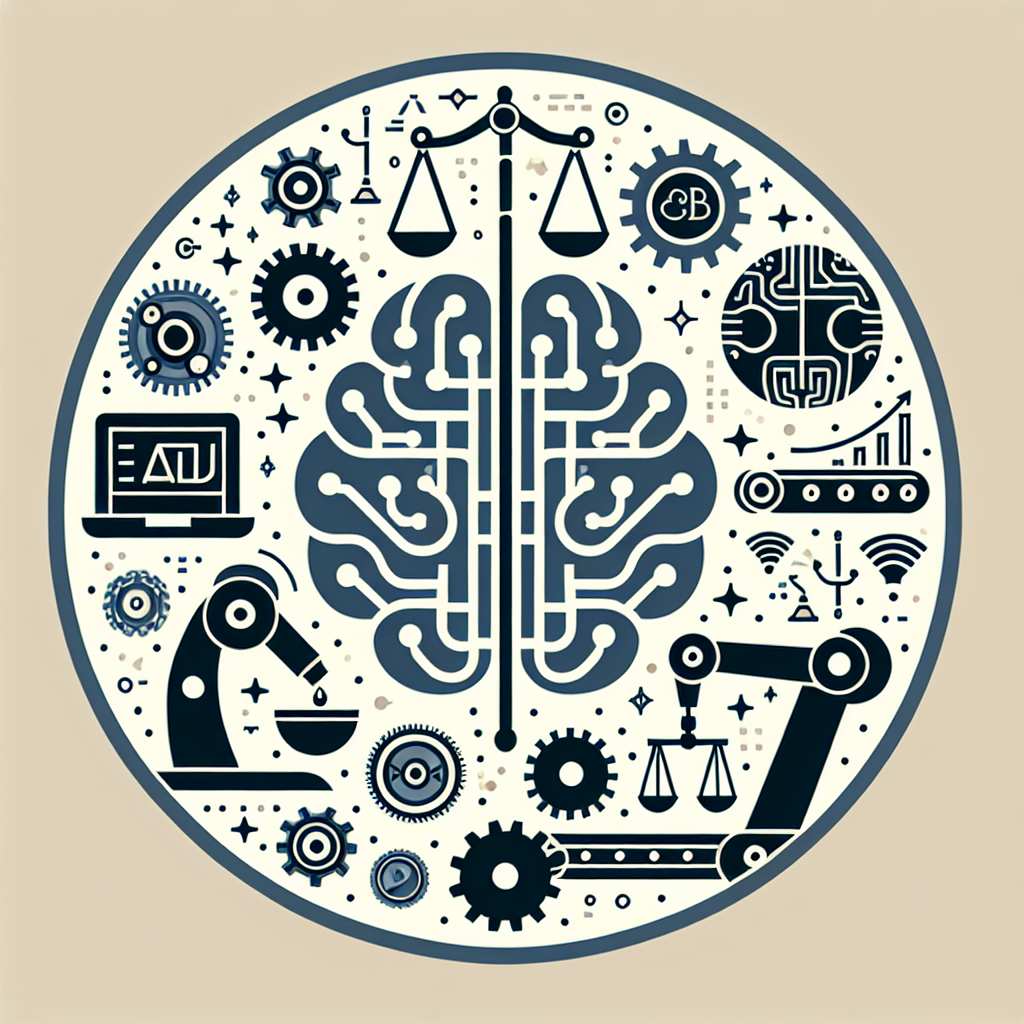In recent years, artificial intelligence (AI) has become an integral part of many industries, revolutionizing the way businesses operate and making processes more efficient. However, as AI continues to advance, there are growing concerns about its impact on job automation and the potential ethical implications that come with it.
Ethical AI refers to the development and use of AI technologies in a way that upholds ethical standards and values. This includes ensuring that AI systems are fair, transparent, accountable, and respect the rights and dignity of individuals. When it comes to job automation, ethical considerations become even more critical as AI technologies have the potential to disrupt the workforce and displace traditional jobs.
The Impact of Ethical AI on Job Automation
Job automation refers to the use of technology, such as AI and robotics, to perform tasks that were previously done by humans. While job automation has the potential to increase efficiency and productivity, it also raises concerns about the displacement of workers and the widening of the skills gap. Ethical AI plays a crucial role in mitigating these risks and ensuring that the benefits of automation are shared equitably.
One of the key ethical considerations in job automation is the impact on workers. As AI technologies become more sophisticated, they have the ability to perform a wide range of tasks, from routine administrative work to complex decision-making processes. This can lead to the displacement of workers in certain industries, particularly those that rely heavily on manual labor or repetitive tasks.
To address this issue, companies must consider the ethical implications of job automation and take steps to retrain and reskill workers whose jobs may be at risk. This includes providing opportunities for workers to acquire new skills and transition to roles that are less susceptible to automation. By investing in the development of their workforce, companies can ensure that the benefits of automation are shared among all employees and create a more inclusive workplace.
Another ethical consideration in job automation is the potential for bias and discrimination in AI systems. AI algorithms are only as good as the data they are trained on, and if that data is biased or incomplete, it can result in discriminatory outcomes. This is particularly concerning in areas such as hiring, where AI systems are used to screen job applicants and make hiring decisions.
To address this issue, companies must ensure that AI systems are designed and implemented in a way that minimizes bias and promotes fairness. This includes conducting regular audits of AI systems to identify and mitigate any biases that may be present. Companies should also be transparent about how AI systems are used in the hiring process and provide avenues for recourse if an individual believes they have been unfairly discriminated against.
In addition to bias and discrimination, another ethical consideration in job automation is the impact on job quality. While AI technologies have the potential to increase efficiency and productivity, they can also lead to the de-skilling of certain jobs and the erosion of job quality. This can result in lower wages, decreased job security, and reduced opportunities for career advancement.
To address this issue, companies must ensure that the benefits of automation are shared equitably among all workers and that job quality is not sacrificed in the pursuit of efficiency. This includes investing in training and development programs to help workers adapt to the changing demands of the workforce and providing opportunities for career advancement and skill enhancement.
FAQs
Q: What are some examples of job roles that are at risk of automation?
A: Job roles that involve routine, repetitive tasks are most at risk of automation. This includes roles in manufacturing, transportation, data entry, and customer service.
Q: How can companies ensure that the benefits of automation are shared equitably among all workers?
A: Companies can ensure that the benefits of automation are shared equitably by investing in training and development programs, providing opportunities for career advancement, and retraining workers whose jobs may be at risk.
Q: How can companies minimize bias and discrimination in AI systems used for job automation?
A: Companies can minimize bias and discrimination in AI systems by conducting regular audits, ensuring that data used for training is unbiased, and being transparent about how AI systems are used in the hiring process.
Q: What are some ethical considerations that companies should keep in mind when implementing job automation?
A: Companies should consider the impact on workers, potential bias and discrimination in AI systems, and the quality of jobs that may be affected by automation. By addressing these ethical considerations, companies can ensure that the benefits of automation are shared equitably and that job quality is not sacrificed.

